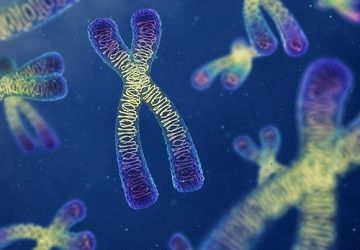Periodontal Disease Genes Identified
Researchers at Columbia University College of Dental Medicine (CDM) have identified 41 master regulator genes that may be responsible for the development of periodontal disease.

Periodontal disease has had many mentions in the news recently due to its links to other, more chronic diseases like heart disease and Alzheimer’s. Now, researchers at Columbia University College of Dental Medicine (CDM) have identified 41 master regulator genes that may be responsible for the development of this common dental problem.
The study at CDM was the first of its kind. Dental researchers used genome-wide reverse engineering to identify specific genetic pathways that lead to periodontitis. In genetic studies up until this point, scientists have only been able to identify genes that are commonly expressed in either healthy or diseased tissue. However, such studies can’t pinpoint a causal relationship between genes and the disease being studied. Further, many genes that affect large numbers of pathways in the development of the disease are often missed.
The dental researchers were able to use an algorithm previously used for the reconstruction of accurate cellular networks to analyze large gene expression profile data sets. The data sets were obtained from healthy individuals and patients that already had a diagnosis of periodontitis. The researchers specifically focused on RNA from tissue samples referenced in the data sets.
Analysis of the data sets identified the 41 master regulator genes, which all activated or were a part of pathways regulating immune response signaling processes. These findings confirmed laboratory and clinical observations of the development of periodontal disease.
Panos N. Papapanou, DDS, PhD, who is a professor and Chair of Oral, Diagnostic, and Rehabilitation Sciences at CDM said in a news release that “this allows us to focus on the handful of genes that represent the most important players in the process rather than the whole transcriptome."
Since these 41 master regulator genes have been identified, it’s now up to researchers to develop and test medications and compounds that disrupt their action, thereby developing treatment options to stop periodontitis at its source. Treatment is vitally important before or in the early stages of the disease, before teeth are lost and supporting bone is also destroyed.
As Papapanou says, "Now it's important to do the downstream work of validating these master regulators in the lab before we can test these genes in experimental models."
ACTIVA BioACTIVE Bulk Flow Marks Pulpdent’s First Major Product Release in 4 Years
December 12th 2024Next-generation bulk-fill dental restorative raises the standard of care for bulk-fill procedures by providing natural remineralization support, while also overcoming current bulk-fill limitations.